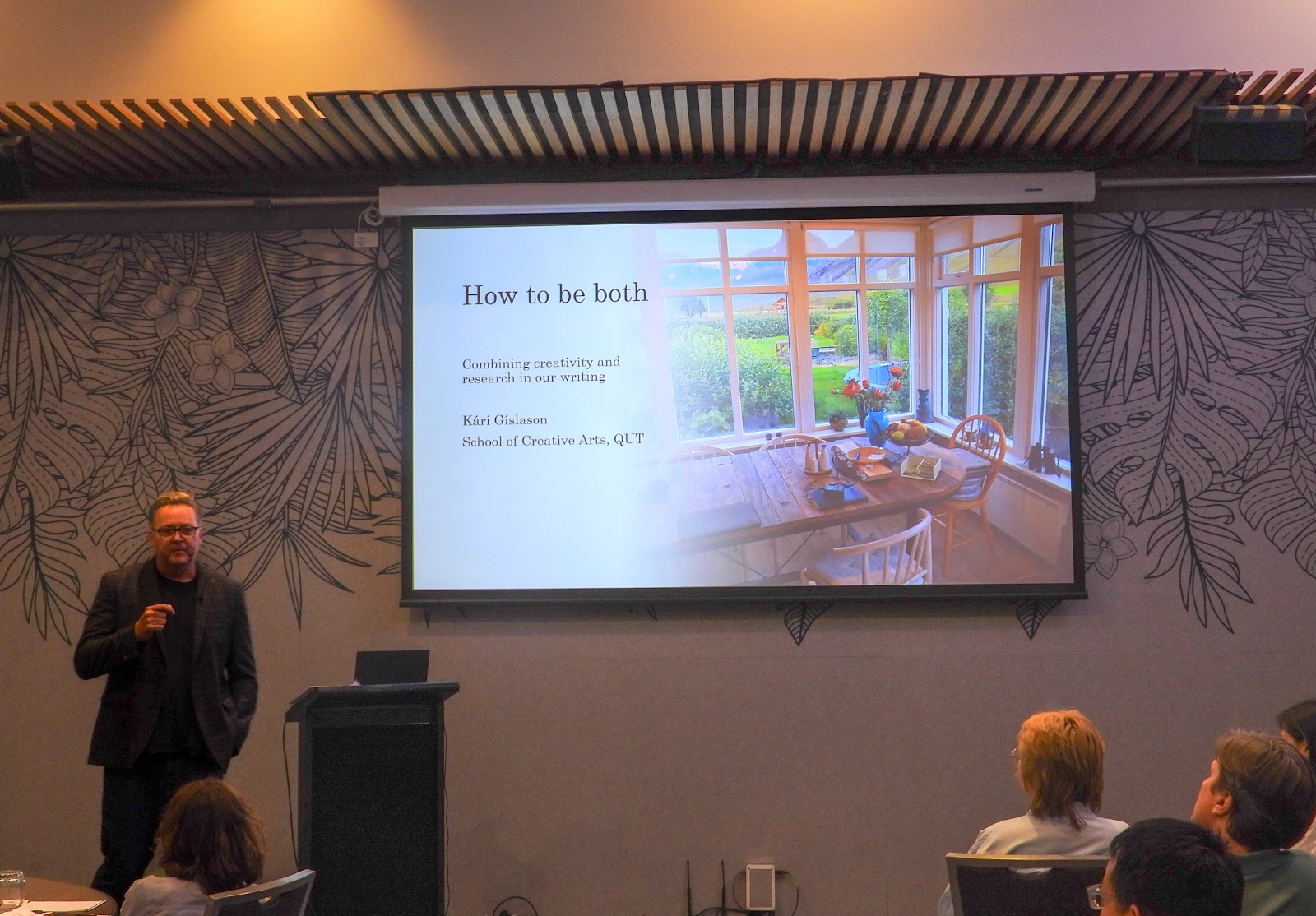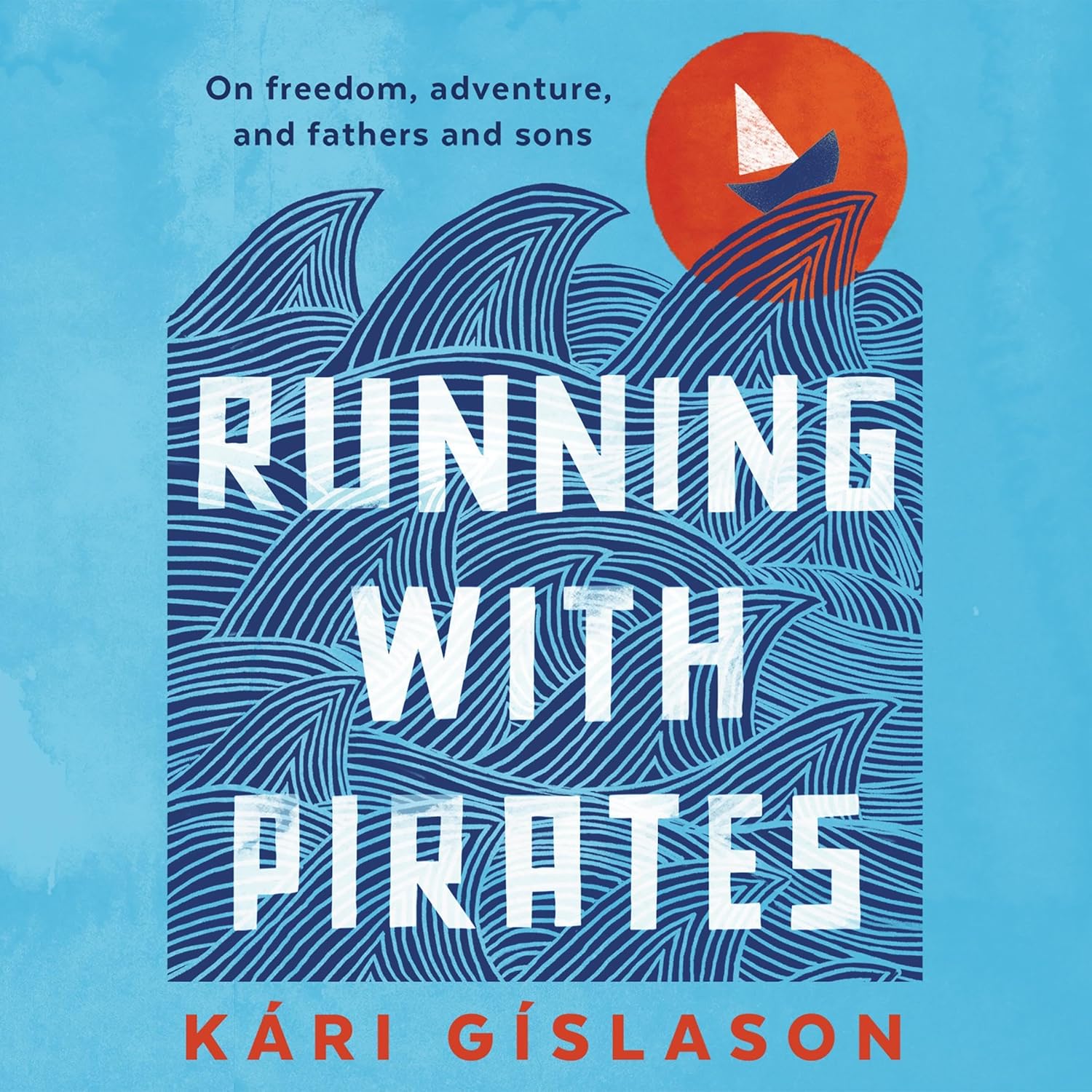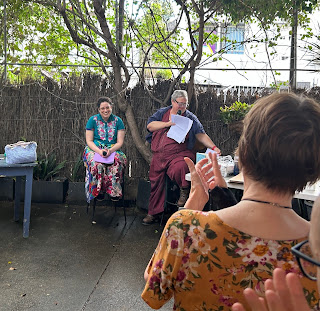In the morning, I have my local swimming pool entirely to myself, a very settling luxury ahead of a busy day, and also reflective of the creative process, which so often moves from a solitary hours of thought, repetition, and movement to a more public sharing. Each of these requires the other: without the anticipation of publication, the solitary activity is confined and uneasy in its lack of purpose, without time alone the art is diffused by its surroundings, blended to the point of losing its voice.

I've never really been one for celebrating my birthdays, but the publication of a book does feel like a birthday of sorts, and the launch event is the party that is its due. When I get in from my swim, I take what stands in as a birthday selfie - me at 51, I guess; me on the day of my fifth book, yes - before settling down to work on my next project, a novel that I'm writing. By the time one project is released into the world, I am preoccupied with the next. As a result, the launch is both the beginning of one book's life and, for the writer, permission to move on to the next.

But the pendulum between past and present projects keeps swinging for a time yet. I have been spending the last few afternoons recording the narration for the audio book of Running with Pirates, a very different kind of revisiting of a work, because now you are performing it rather than editing it; that is, the goal is to render the writing as best you can, rather than see its further development, as one usually does.
 |
| In conversation with Nick Earls (pic: Jean Smith) |
Rather as is the case at a launch event, too, which takes place at The Loft, West End, organised by my publisher UQP with Avid Reader Bookshop. There is a great turn out of friends, family, colleagues, writers and readers; Nick Earls leads the conversation with an insightful series of questions that includes a discussion of the influence of place and landscape, the sources of the great faith one sometimes feels in the world, as well as questions of composition, form and point of view; we have audience questions, too, including about the nature of personal debts and how memory exists in creative writing; before a final part of the night, when I offer a song that I've written in response to the book.
|
| With UQP publishing director, Madonna Duffy (pic: Jean Smith) |
 |
| Reading from Running with Pirates (pic: Colin Thistlethwaite) |
 |
| A closing song (pic: Felicity Dunning) |








































